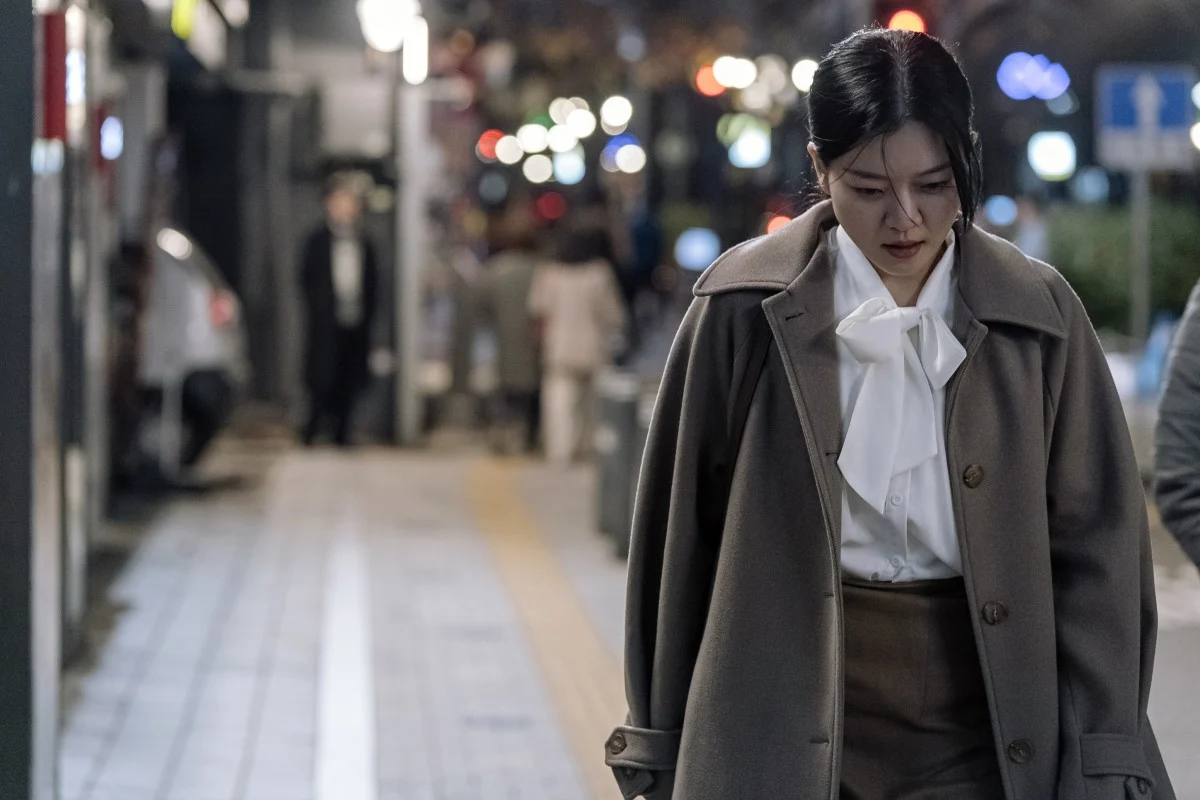“Because I Hate Korea” pierces through the opening atmosphere of the 28th Busan International Film Festival with a quizzical blend of audacity and existential nuance, launching the audience into a labyrinthine journey of urban dissatisfaction and the tumultuous voyage toward self-discovery. Directed by Jang Kun-jae, the film, a cinematic adaptation of Jang Kang-myung’s 2015 novel, hinges upon the emotional and geographical odyssey of its protagonist, Gye-na, meticulously brought to life by Ko A-sung, widely recognized for her stellar performances in Bong Joon-ho’s “The Host” and “Snowpiercer.”
Set against the dense, tumultuous backdrop of Seoul, we witness Gye-na, a young woman submerged in a state of disillusionment and disenchantment, gradually uncoil from the societal and familial expectations enveloping her existence. Her journey, in its embryonic stages, subtly encapsulates the pent-up frustrations and the suffocating pressure often experienced by the younger generation, amid the unrelenting torrents of social norms and obligations. This initial exposition, wherein Gye-na’s exasperation seamlessly intertwines with the dissonant urban tapestry of Seoul, offers an intriguing premise that delicately balances the personal with the collective, painting a poignant, albeit stifling, image of youth amidst the metropolitan malaise.
However, when Gye-na, choosing to sever ties with her affluent boyfriend Ji-myung (Kim Woo-kyum) and the life that had been meticulously laid out before her, embarks upon a clean slate in New Zealand, the narrative, much like the protagonist, ventures into an unfocused and disjointed terrain. The film, attempting to mirror Gye-na’s tumultuous internal world and her path of erratic self-exploration through its narrative structure, unfortunately, skates on the thin ice of cohesiveness and thematic profundity. A tangible disconnect punctuates the film as it transitions into the realms of cultural dichotomies and immigrant experiences, with stilted English dialogues and occasionally caricatured interpretations of cultural interaction diluting the initially potent narrative brew.
The stark contrast in narrative depth and emotive resonance becomes particularly palpable when juxtaposed against the festival’s Korean Diasporic Cinema programme, which illuminates the experiences of Korean nationals and immigrants beyond the confines of the Han peninsula. Films like “Past Lives,” “Minari,” and “Burning” engage in a rich, intricate exploration of identity, belonging, and the immigrant experience, casting an unintentionally critical light upon “Because I Hate Korea” and its somewhat wavering narrative depth and character development, as it traverses through the foreign landscapes, both internal and external.
Nonetheless, the film doesn’t entirely descend into a cinematic abyss, as Ko A-sung’s portrayal of Gye-na resonates with a silent, nuanced intensity, sustaining a sympathetic connect with the audience despite the muddied narrative waters through which she sails. Moreover, Joo Jong-hyuk’s Jae-in injects a refreshing, spirited energy into the film, providing a fleeting, yet meaningful companionship that temporarily anchors Gye-na’s aimless wanderings within the picturesque yet emotionally alien terrains of New Zealand.
In retrospect, “Because I Hate Korea” unveils a tapestry where the threads of individual disillusionment, societal expectations, and cross-cultural explorations are interwoven with varying degrees of success. While it propels its protagonist into a world teetering between liberation and isolation, the film navigates through its own dichotomies of coherent storytelling and thematic meandering, providing glimpses into a world where the pursuit of self, away from the familiar, is as disorienting as it is liberating. This cinematic endeavor thus stands as a vessel, albeit slightly leaky, through which the explorations of youthful disenchantment, escape, and the chaotic pursuit of meaning are cautiously sailed through the international cinematic waters of the festival.
READ MORE:
